In recent months, there has been much speculation about whether a recession is coming in 2023. As the economy continues to fluctuate and uncertainty remains high, it’s essential to understand what a recession is and how it can affect different aspects of our lives.
A recession is a period of economic decline characterized by diminishing gross domestic product (GDP), rising unemployment, and decreasing consumer spending. Recessions can significantly impact various industries, including finance, real estate, and retail, and can also affect different groups of people in varying ways.
In this blog post, we will explore what a recession is, how it can affect the way you invest, and the industries most affected by a recession. We will also examine the potential impacts of a recession on different groups of people, such as low-income families, small businesses, and the unemployed. Additionally, we will discuss how the 2023 recession may differ from past recessions and what this may mean for the economy and the general population.
Let us start by understanding the meaning of the term recession.
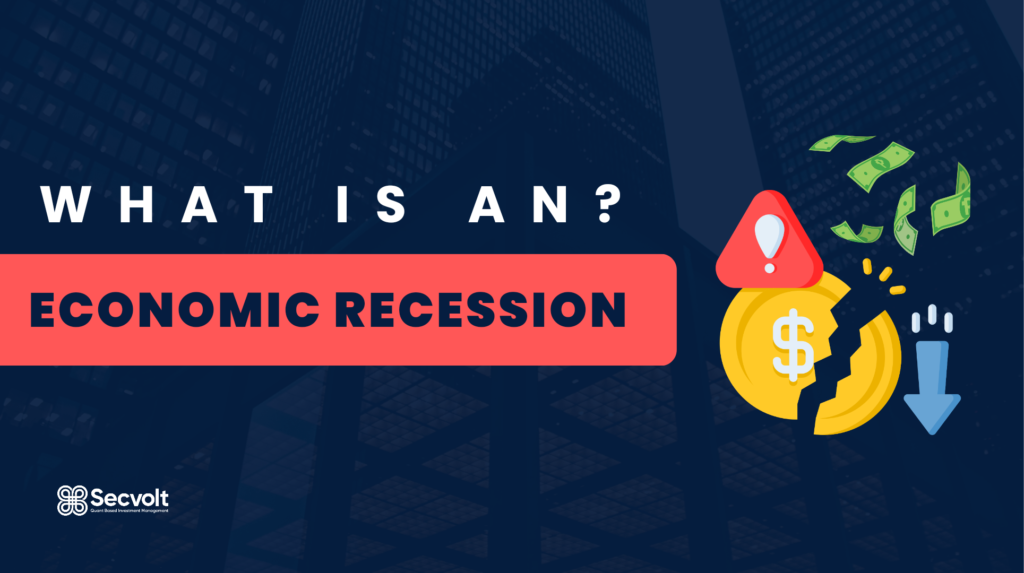
What Do You Understand By The Term Economic Recession?
Economic recession is a term used to describe a period of economic decline characterized by a decrease in the gross domestic product (GDP), rising unemployment, and a reduction in consumer spending. Two consecutive quarters of negative economic growth measured by GDP indicate that the economy is in a recession.
Many businesses suffer financial losses during a recession, leading to job cuts and increased unemployment. Consumers also tend to spend less during a recession, which can lead to a decline in demand for goods and services. This, in turn, can lead to further job cuts and business closures.
Various factors, including a decline in consumer confidence, an increase in interest rates, and a decrease in government spending, can cause recessions. External factors, such as a global economic downturn or a natural disaster, can also trigger them.
The global recession in 2023 is a subject of concern for many experts, as the world is still recovering from the last recession of 2008-09 and the recent pandemic’s impact on the economy. The economic impact of the COVID-19 pandemic has been severe, and many countries are still dealing with its aftermath.
The increasing uncertainty in the global economy, ongoing trade tensions, political instability, and natural disasters are reasons experts have been warning of a global recession in 2023.
Next, let us look at how a recession affects the way you invest.
If you need some ideas about what to read next, here they are:
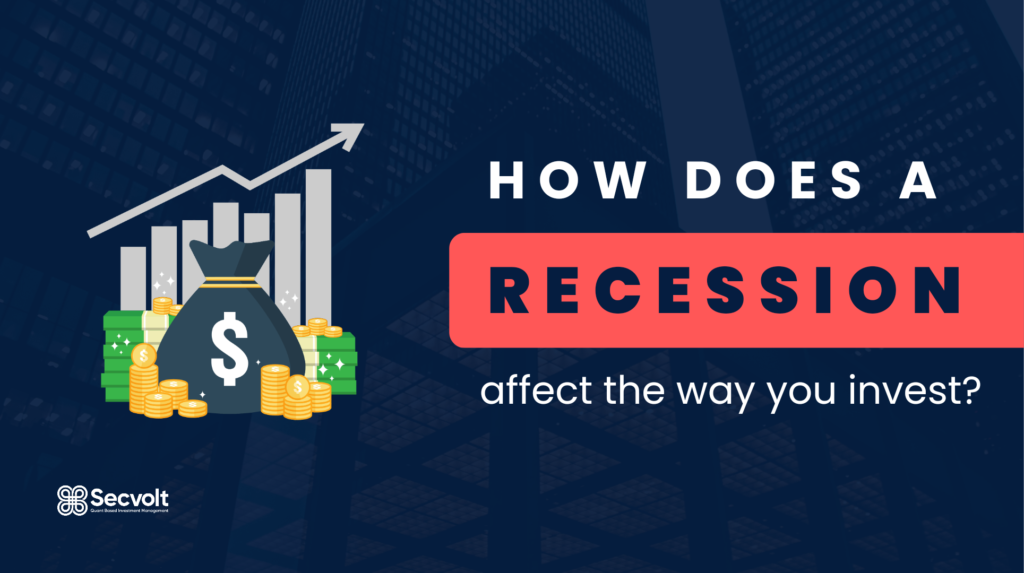
How Does A Recession Affect The Way You Invest?
Investors must understand how the 2023 recession can affect their investments, as it can significantly impact the stock market and the performance of other assets. It is important to keep in mind all of these factors for a balanced portfolio.
- Stock Prices- During a recession, stocks and other investments may experience sharp declines in value. The reasons can be decreased consumer spending, rising unemployment, and declining business profits. Many companies may struggle to meet financial obligations, leading to defaults or bankruptcies. This can cause a further decline in stock prices.
- Bonds– Bonds, considered a safer investment, may also be affected by a recession. As interest rates rise during a recession, bond prices tend to fall. This can lead to significant losses for bondholders. Additionally, as companies struggle to meet their financial obligations, the risk of default increases, leading to losses for bondholders.
- Real Estate– Real estate is another investment that can be affected by a recession. As unemployment rises, many people may struggle to make mortgage payments, leading to an increase in foreclosures. This can cause a decline in home values and lead to losses for real estate investors.
- Precious Metals– It’s important to note that not all investments are affected equally during a recession. Some investments, such as gold and other precious metals, may increase in value during a recession as investors seek out safe-haven assets.
- Healthcare & Technology– Additionally, sectors such as healthcare and technology may be less affected by a recession as they tend to be more resilient to economic downturns. Thus, putting money into these industries is always considered an insulated investment.
Thus, we have seen how an economic downturn can affect your investments. Now, let us look at the industries that are most affected by a recession.
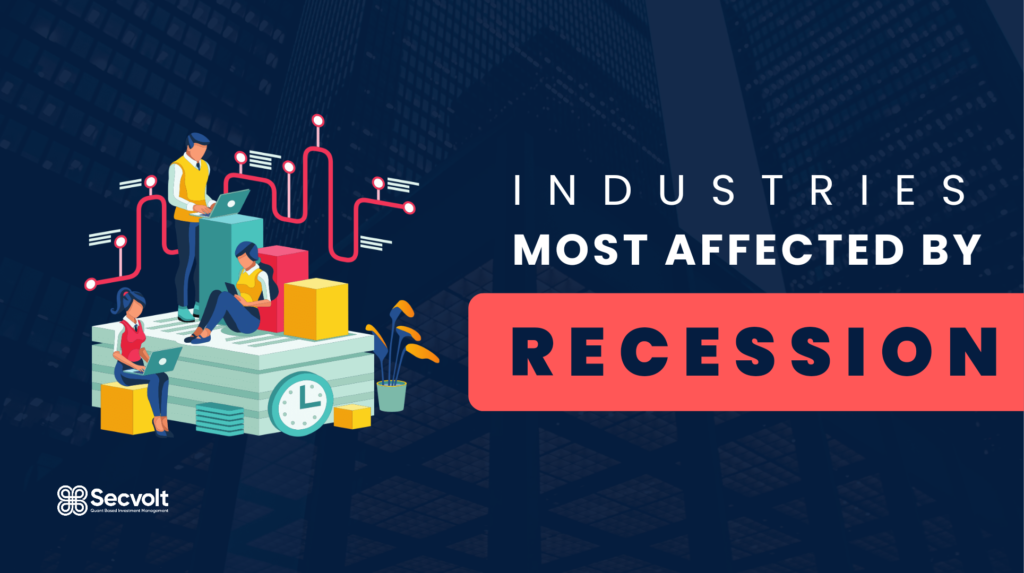
Industries Most Affected By A Recession
During a recession, certain industries tend to be more affected than others. As consumer spending decreases and businesses struggle to stay afloat, certain sectors may experience sharp declines in demand and profits. The global recession in 2023 is already here. Following are some industries that might be most affected.
- Automotive Industry- One of the industries most affected by a recession is the automotive industry. As consumer spending decreases, demand for new cars and trucks tends to decline. This can lead to production cuts, job losses, and the shutting down of auto dealerships. Additionally, as interest rates rise during a recession, people may be less likely to take out loans to buy cars, further hurting the industry.
- Real Estate Industry- Another industry that tends to be affected by a recession is the real estate industry. As unemployment rises, many people may struggle to make mortgage payments, and thus their mortgages might be taken possession of by lending institutions. This can cause a decline in home values and lead to losses for real estate investors. Construction activities also slow down in a recession as fewer new homes get built & even renovations are made less frequently.
- Retail Industry- The retail industry is also affected by a recession, as consumer spending decreases. Many retailers may struggle to stay afloat, leading to stores shutdown and job losses. Additionally, as demand for goods decreases, suppliers may also be affected, leading to the firing of workers & factories and warehouses going out of operation.
- Travel & Tourism Industry- The travel and tourism industry is also affected by a recession, as people may be less likely to take vacations or travel for business. This can lead to declining airline tickets, hotel rooms, and rental car demand. Additionally, as companies struggle to stay afloat, they may be less likely to pay employees to travel for business, causing further loss.
- Services Industry- A recession may also affect the services industry, as people may be less likely to spend money on non-essential services such as haircuts, spa treatments, and dining out. This can lead to a decline in demand for these services and unemployment in the industry.
In conclusion, some industries are more affected during a recession than others. The global recession in 2023 is a subject of major concern for the mentioned industries. Investors and business owners need to properly analyze their businesses and take steps to protect their assets and make informed decisions for the future.
Next, let’s discuss how recession impacts different groups of people.
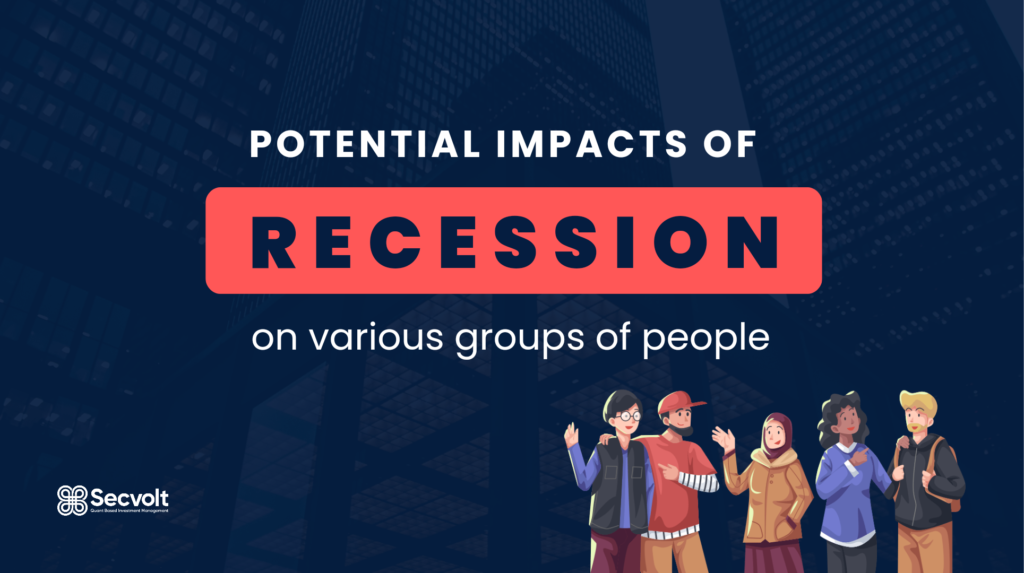
Potential Impacts of Recession on Various Groups of People
A recession can significantly impact different groups of people, and the global recession in 2023 is no different. Following is how various groups of people are affected by it:
- Low-Income Families- One group often affected by a recession is low-income families. As unemployment rises during a recession, many low-income families may struggle to make ends meet. They may have difficulty paying for basic necessities such as food, housing, and healthcare. Additionally, as consumer spending decreases, demand for low-cost goods and services may decline, leading to layoffs in industries that primarily serve low-income communities.
- Small Businesses- Small businesses are also often affected by a recession. As consumer spending decreases and demand for goods and services go down, many small businesses may struggle to operate. This can lead to an ending for the businesses. Additionally, as interest rates rise during a recession, small businesses may have difficulty obtaining loans to fund operations, causing a further decline in output.
- Unemployed People- The unemployed are also affected by a recession. As businesses struggle to stay afloat, they may be forced to cut jobs, leading to an increase in unemployment. This can make it difficult for the unemployed to find new jobs and make ends meet. Additionally, as demand for goods and services declines, businesses may be less likely to invest in new projects or hire new employees, worsening the problem.
- Elderly People- The elderly are also affected by a recession. As investments decline in value and interest rates rise, recessionary pressure may deplete the savings of the elderly group. What they once put aside, thinking it was going to be their lifetime savings, suddenly contracts because of the economic pressures caused by the recession.
- Young Adults- Young adults are also affected by a recession. They may have difficulty finding jobs as businesses struggle to do the bare minimum, leading to an increase in unemployment. Additionally, as consumer spending decreases and demand for goods and services declines, many companies may be less likely to hire freshers; young adults just starting their careers.
In conclusion, the global recession in 2023 can significantly impact different groups of people. In the next section, let’s have a look at how this recession is going to be different from the past ones.
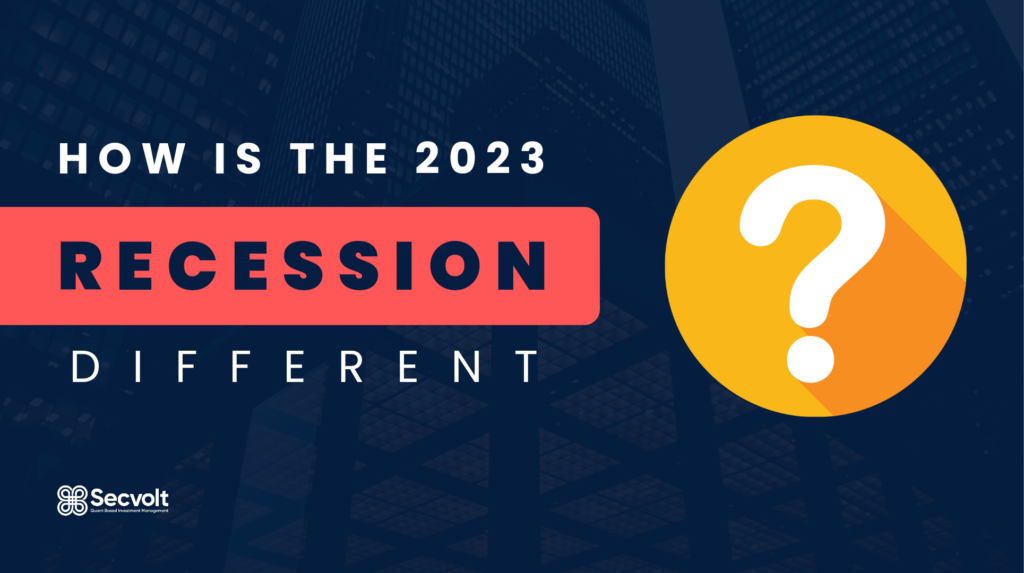
How is the 2023 Recession Different?
The recession in 2023 may differ from past recessions in several ways. The current global economic situation, which has still not recovered from the recent pandemic’s impact, is going to face another attack in the form of a global recession in 2023.
But this recession is going to be different from the ones we have faced in the past. Let us understand how?
- Presence of External Factors Too- One way in which the 2023 recession may differ from past recessions is the cause. While past recessions were because of factors such as a decline in consumer confidence, an increase in interest rates, and a decrease in government spending, this one may be because of a combination of these factors as well as external factors such as a global economic downturn, ongoing trade tensions, political instability, and a natural disaster.
- Longer Time Duration– Another way in which it may differ from past recessions is the duration. While past recessions have typically lasted for a year or two, the 2023 recession may last longer due to the ongoing uncertainty in the global economy.
- Significant Impact on Certain Sectors– This may also differ in terms of the affected sectors. While past recessions have typically affected certain industries, such as automotive, real estate, and retail, this time, it might have a more widespread impact on the economy. Additionally, the effect of the pandemic on the economy may lead to a more significant impact on specific sectors, such as travel, tourism, and the service industry.
In conclusion, the 2023 recession may differ from past recessions in many ways, including the cause, duration, and affected sectors.
While no one can stop a recession completely, as it is a part of the business cycle, you can surely weather its effects with the help of certain investment options. Let us look at one such alternative in the final section.
The Bottom Line
In summary, a recession is a period of economic decline that can have a significant impact on various industries such as finance, real estate, and retail. It can also affect different groups of people in varying ways, such as low-income families, small businesses, and the unemployed. The 2023 recession may differ from past recessions in several ways, such as cause, duration, and the affected sectors.
As an investor, it’s essential to stay informed and prepare for a downturn. Though it’s difficult to predict with certainty what kind of a recession is coming in 2023, it’s always best to be prepared. One way to mitigate the risks of a recession is to diversify your portfolio and consider alternative investments like hedge funds. Hedge funds like Secvolt, which offer effective risk management, amazing strategies, and extraordinary returns, can provide a shield against recession and help achieve your financial goals. Secvolt uses a combination of AI & IQ to help investors achieve their investment goals & help them beat the recession.



